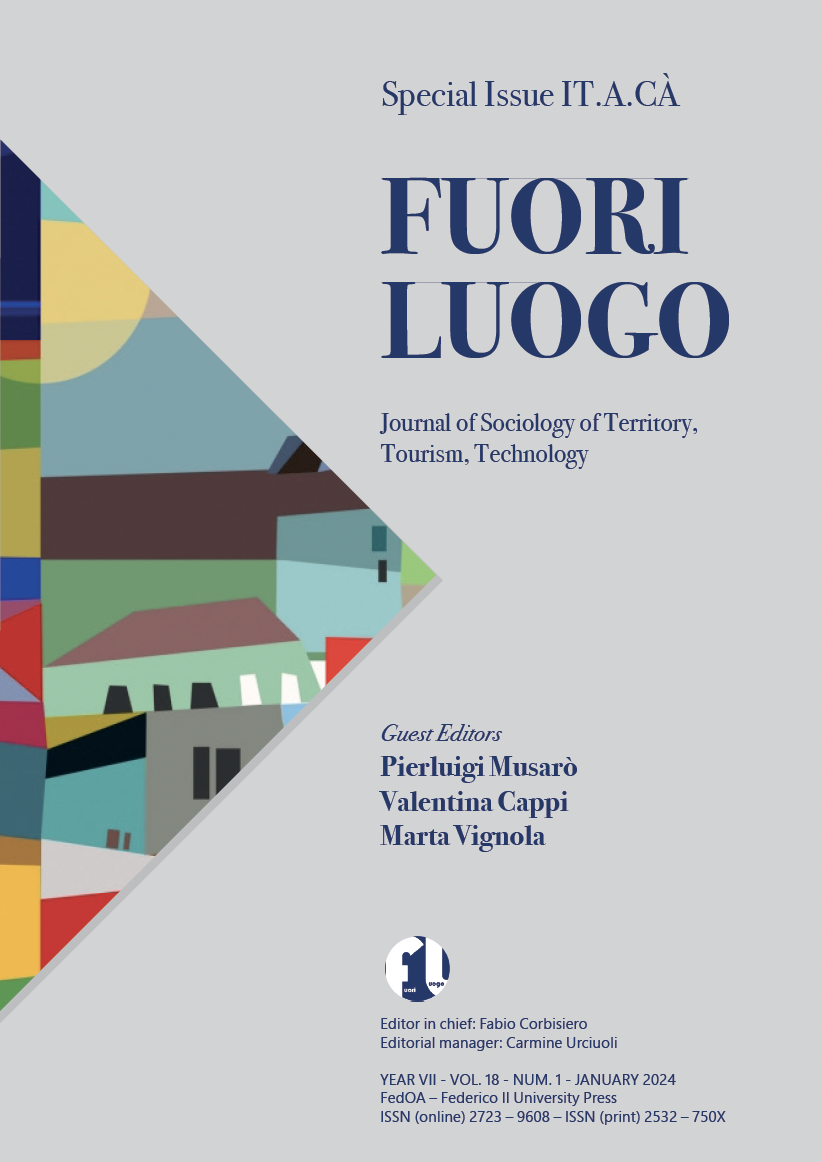Rethink the Inland Areas. A Question of Imagination?
Abstract
The pandemic context has triggered a different narrative in Italy compared to the usual one linked to the image of inland areas. No longer understood only as problems or spaces of lack, the inland areas have become opportunities for a new approach to sustainable development, capable of overcoming the socio-territorial polarisation between urban centres and peripheral realities (Fenu, 2020). However, the return to the countryside, fuelled by generic proposals on the immediate and indistinct repopulation of Europe's rural areas and by an idealised narrative that contrasts the amenity of bucolic life with the chaos of the city, as well as nostalgia for the past with urban modernity, appears simplistic. In fact, contemporary crises clearly show - the recent Pandemic is only the latest example - the socio-ecological relations that trigger them, making it possible to recognise the structural, complex and epochal character of the phenomena, beyond interpretations that frame them as circumstantial and provide inadequate answers (Moralli, Allegrini, 2020). These relations, by shifting from the global to the local, make it possible to frame local experiments as the only possible solutions against global and generic ones. More generally, they open up spaces for a re-signification of the imaginary (Carmagnola, Matera, 2008), and in particular for a reflection on the anthropocentrism of the Anthropocene itself; offering the possibility of reinserting human action within a chain of agency involving multiple and heterogeneous species, both human and non-human (Latour, 2020). Starting from a theoretical introduction on imaginary, inland areas and new narrative practices, the paper will then present some concrete examples of grassroots territorial design that took place within the IT.A.CÀ Festival of Responsible Tourism, capable of providing alternative symbolic and communicative meanings on the Italian 'marginal' and 'inland' landscapes. These examples will show how inland areas can thus become a real opportunity to design more solid and inclusive social infrastructures also starting from the language through which the territory is described and codified. First of all, by deconstructing incoherent media and political frameworks, but also by triggering trust in innovative regeneration processes from below and releasing living from the condition of permanence in order to link it rather to the concepts of care and interaction between bodies and inhabitant species (Barbera et al., 2020).
Downloads
Copyright (c) 2024 Chiara Davino, Melissa Moralli, Lorenza Villani

This work is licensed under a Creative Commons Attribution 4.0 International License.




